Aluminum titanate porous (TIALIT‑G)
70% aluminum oxide, 30% titanium oxide (Al2TiO5)
One of the most important characteristics of aluminium titanate (Tialit) is its thermal shock resistance. This means that large temperature changes do not pose a problem for components made from this material, as it remains very stable and durable.
Another advantage of aluminium titanate (Tialit) is its low wettability by liquid aluminium and its excellent thermal insulation properties. These features make it an ideal material for foundry applications such as crucibles or nozzles.
In mechanical and plant engineering, aluminium titanate (Tialit) also impresses with remarkable properties. Particularly beneficial is its high residual porosity combined with fine microcracks caused by the anisotropic thermal expansion of the ATI crystals. Since these crystals exhibit different thermal expansion coefficients along their three main axes, microscopic stresses develop during cooling. These stresses lead to the formation of finely distributed microcracks, which provide the material with exceptional thermal shock resistance and mechanical strength – ideal prerequisites for demanding technical applications.
Aluminium titanate (Tialit) behaves very stably during temperature changes and exhibits very low thermal expansion. This is because the individual crystals expand differently in various directions (known as thermal expansion anisotropy). When heated, internal stresses initially spread into the small microcracks, preventing significant deformation and maintaining the material’s overall stability.
-
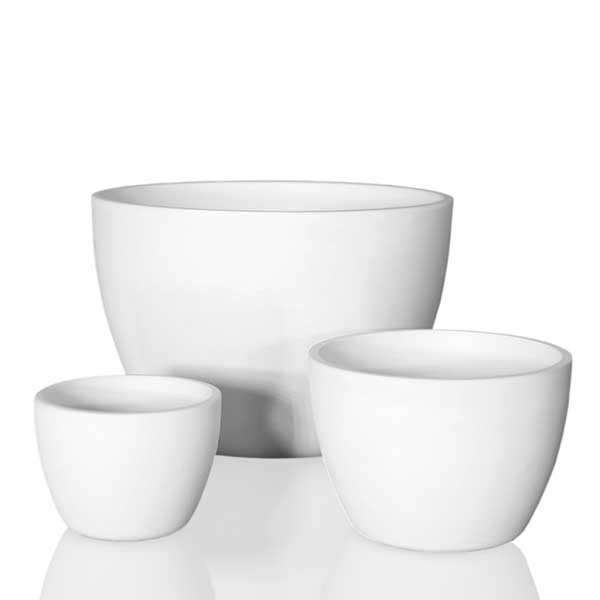
Crucibles Conical - Squat Shape - Aluminum titanate porous - TIALIT‑G - CCB (8)
CCB
Crucibles Conical
Squat Shape
-
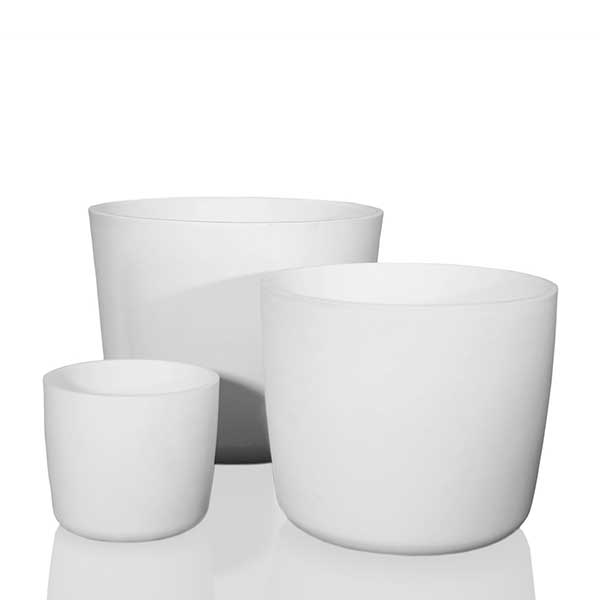
Crucibles Conical - Medium Shape - Aluminum titanate porous - TIALIT‑G - CCM (10)
CCM
Crucibles Conical
Medium Shape
-
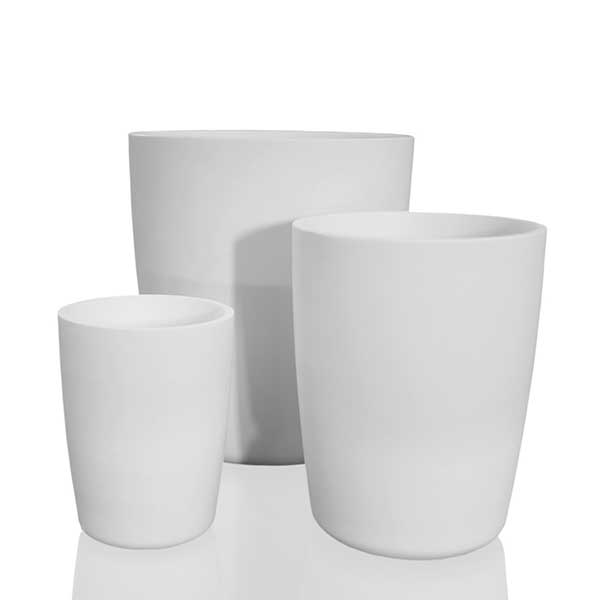
Crucibles Conical - High Shape - Aluminum titanate porous - TIALIT‑G - CCH (10)
CCH
Crucibles Conical
High Shape
-
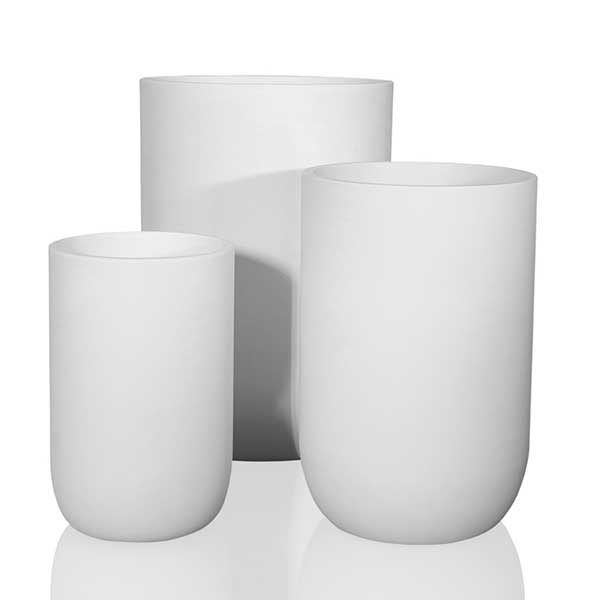
Crucibles Cylindrical Shape - Aluminum titanate porous - TIALIT‑G - CCY (17)
CCY
Crucibles Cylindrical Shape
-
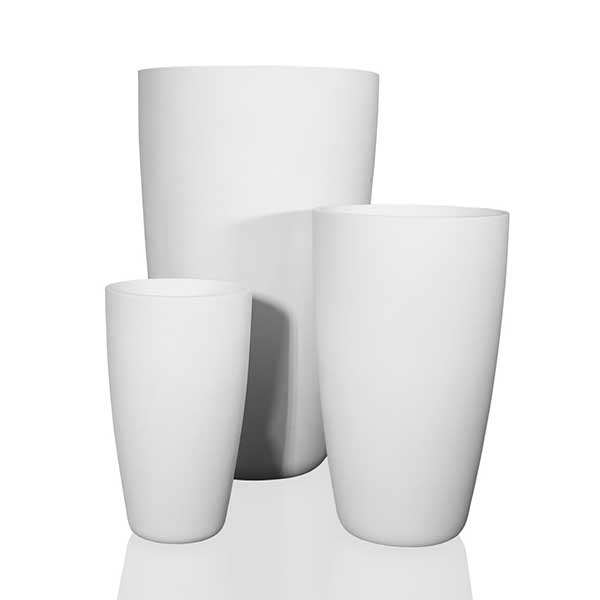
Crucibles Conical - Ultra High Shape - Aluminum titanate porous - TIALIT‑G - CCU (12)
CCU
Crucibles Conical
Ultra High Shape
-
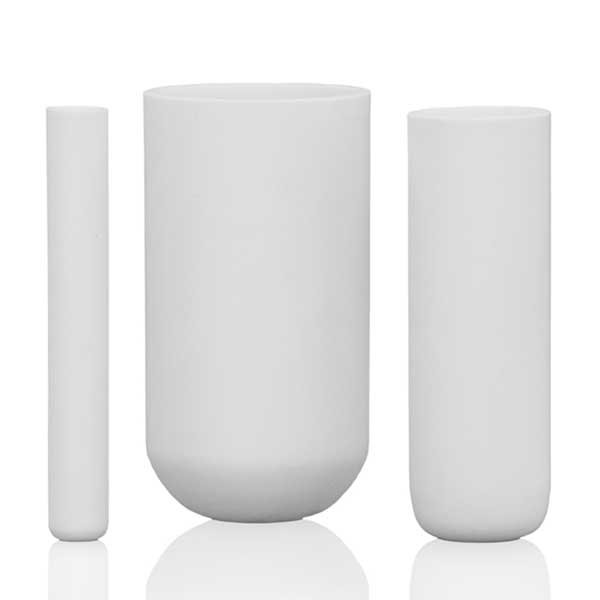
Crucibles Tubular - Squat Shape - Aluminum titanate porous - TIALIT‑G - CTB (14)
CTB
Crucibles Tubular
Squat Shape
-

Crucibles Tubular - High Shape - Aluminum titanate porous - TIALIT‑G - CTH (11)
CTH
Crucibles Tubular
High Shape
-
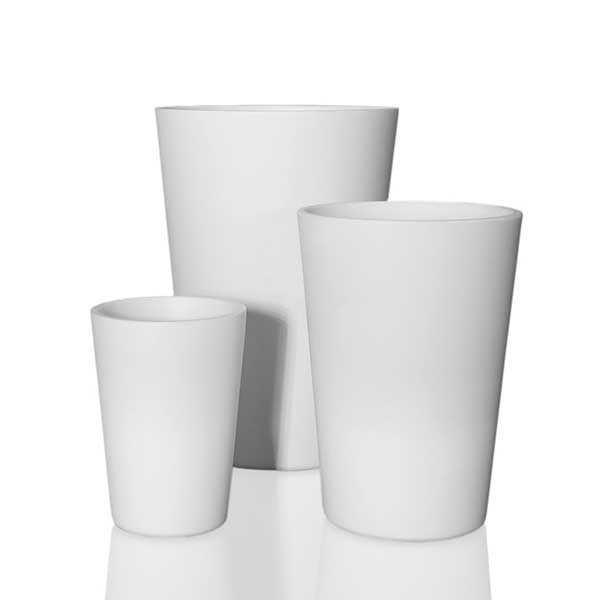
Crucibles conical shape - Aluminum titanate porous - TIALIT‑G - K (10)
K
Crucibles conical shape
-

Laboratory Crucibles Cylindrical Shape - Aluminum titanate porous - TIALIT‑G - Z (28)
Z
Laboratory Crucibles Cylindrical Shape
-
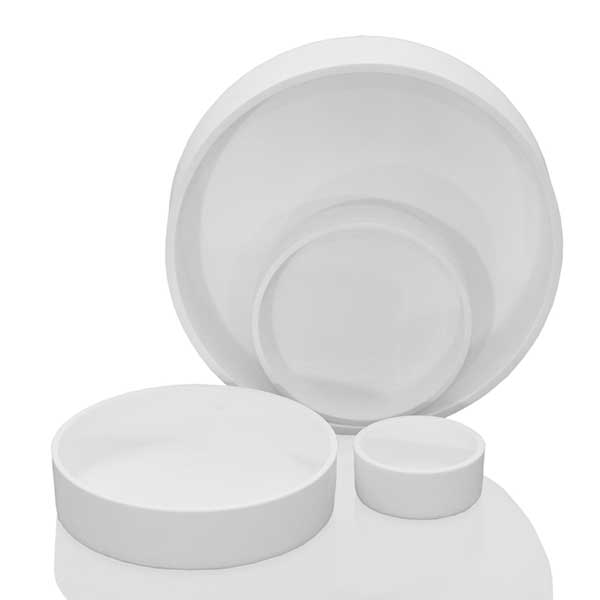
Round Ceramic Bowls - Aluminum titanate porous - TIALIT‑G (10)
Round Ceramic Bowls
-
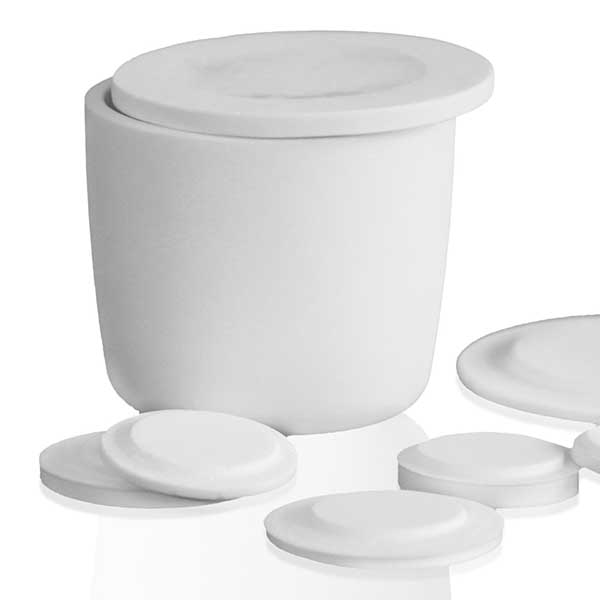
Lid - Aluminum titanate porous - TIALIT‑G - D (12)
D
Lid
SPECIAL PROPERTIES
- high mechanical strength
- high corrosion resistance
- high temperature resistance up to over 1600 °C
- Thermal insulation property
- Good to very good chemical resistance to: Aluminum
